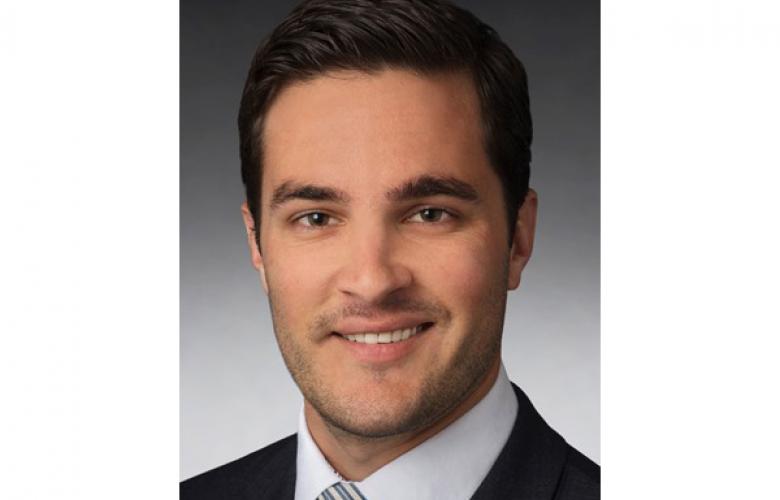Get to know Tom Gibson of JLL Hotels & Hospitality Group
Contact
Get to know Tom Gibson of JLL Hotels & Hospitality Group
Tom Gibson, the Vice President of Investment Sales has been involved in significant transactions in Australia, United States, the Caribbean and Latin America.
Based out of Brisbane, Tom is responsible for the on and off market sale of institutional hotels and resorts across Australia.
Beginning in January 2014, Tom spent three years working in the United States with JLL Hotels & Hospitality Group. Based in Miami and the company’s headquarters in Chicago, Tom was involved in over US$7 billion in institutional hotel and resort transactions and underwriting assignments across major key markets in the United States (including Chicago, Orlando, Washington D.C., Miami, and Fort Lauderdale), the Caribbean (Puerto Rico, Grand Cayman, Trinidad & Tobago and the Dominican Republic) and Latin America (Mexico, El Salvador, Colombia, Brazil, Chile, Guatemala, Honduras Costa Rica and Nicaragua).
Tom has been involved in a range of transactions globally from mid-scale assets to beachfront institutional resorts and other tourism related assets.
How did you get into the hotels industry?
Hotels has long been in the family bloodline for multiple generations from the operations side, all the way through to asset management and investment sales sides. With the hotels seed planted, I pursued a Business Management degree with a major in Hospitality and Tourism, while at the same time working behind bars and concierge desks in some pretty amazing hotels. Soon after leaving university, I was asked to join CBRE’s commercial team which quickly evolved into working with the hotels team. A number of years later as I was ironing my shirt to go to work in Sydney, I received a call from the global CEO of JLL Hotels and was offered a job to join the United States investment sales team in Miami – an easy decision to make!
What are some of your career highlights from your time in the industry?
I’ve been very fortunate to live and work in different parts of the world with this job, stay at some incredible hotels and be involved in significant transactions here in Australia, United States, the Caribbean and Latin America. My tenure in the United States on the whole has probably been the highlight to date to see how those markets function from both a brokerage and operational standpoint. Selling some of the institutional resorts in South Beach and the Caribbean was pretty memorable as well!
What are the biggest issues facing the hotel industry at the moment?
Air BnB’s growing presence and OTA’s have been the most prevalent issues of late as anyone will tell you. Though one area that needs to be more effectively managed is the implementation of political regulations. Over recent years, we have witnessed a number of new laws introduced that have been at the demise of the tourism industry, only to be relaxed or retracted completely. This has been felt across the board from institutional owners to “mum and dad” investors. As a resolution, I think there needs to be improved processes in place to better educate governments on the likely impact to the hotels industry when implementing new laws.
How has the industry changed in the time you have been involved with it?
Where do I start!? The hotels industry is unequivocally the most dynamic and robust asset class in Australia. It is an ever-evolving beast that continues to surprise both hotel owners and operators, as well as guests. One of most prevalent changes in the market from a brokerage perspective would have be the evolution of buyers with the decline of institutional domestic REITs and the subsequent emergence of non-traditional offshore capital. Looking from an operational standpoint, the overall diversification of new hotel brands, guest expectations, legislation changes and technology implications with the introduction of Air BnB would have to stand out as the most significant.
Looking to the future, I think we will see a reduction in hotel brands through consolidation, as well as a spike in acquisitions to non-Chinese offshore capital – namely Japan and the United States. There will also be significant growth in transactions to non-traditional hotel owners as a product of technology changes, specifically in the FinTech space, which will allow unsophisticated syndicators to pool money for institutional hotel acquisitions.
What changes would you like to see over the next two to five years in the industry?
Governments have a habit of artificially controlling hotel market conditions through incentivising developers to encourage new supply. If they want to adopt that aggressive standpoint for core markets, then I think there should be more thought towards providing construction/tax incentives for accommodation assets in non-core regional markets to promote product reinvestment, ultimately driving local economies.
What is your favourite hotel and holiday destination?
Favourite hotel: The Dunmore Beach Hotel in the Bahamas
Favourite holiday destination: A weekend in Noosa – the rest of the world don’t know what they’re missing out on!
See also:
Alfred & Constance, Alfredo's Pizzeria and Kwan Brothers For Sale by JLL







